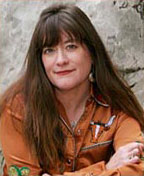


Here is a review from The Tennessean for the book Public Cowboy No. 1: The Life and Times of Gene Autry by Holly George-Warren.
Bio reveals the man behind cowboy legend
Gene Autry
By Rick Tamble
April 8, 2007
In the classic western movie The Man Who Shot Liberty Valance, the town's newspaper editor advises a young reporter, "When the legend becomes fact, print the legend."

Music critic Holly George-Warren ignores this advice in her meticulously researched biography of Gene Autry. Public Cowboy No. 1 presents insights that conflict with the image of the legendary cowboy hero readers may remember from their childhood.
Autry is the only performer to earn five stars on Hollywood's Walk of Fame, one each for radio, TV, film, recordings and live performance. Yet as his fame grew, so did his dependency on alcohol. Toward the end of his personal appearance tours, his drinking required assistants to help him dismount from the horse he was riding, though alcohol did nothing to slow down his wandering eye.
His real name was Orvon Grover Autry. He dropped the middle name to become "Gene" after meeting Gene Austin, a popular crooner of the 1920s. One of Autry's first jobs was as a telegraph operator for the St. Louis-San Francisco Railroad. His family had been sharecroppers, and his absentee father liked to make and sample corn liquor. The money that young Autry earned from his railroad job helped support his mother and siblings.
Autry claimed it was a chance meeting with Will Rogers that encouraged him to go to Hollywood. The author provides a detailed history of the Hollywood "B" westerns Autry made, and she takes great pains to catalog Autry's records within the narrative, as well as providing a special index of his recording sessions.
George-Warren also has many tales to tell, and she does so beautifully. Readers will enjoy the antics involving Autry sidekicks George "Gabby" Hayes, "Smiley" Burnette, Pat Buttram and Patsy Montana. Fred Rose, of Acuff-Rose fame, appears in these pages as one of Autry's favorite songwriters.
Nashvillians who remember the Paramount Theater on Church Street will discover in this book that Republic Studios once canceled a live Autry appearance there. Because of a contract dispute, Republic issued a temporary restraining order preventing him from performing for anyone other than the studio. Judge R.B.C. Howell of Nashville was compelled to enforce the restraining order, but to show no ill will toward the judge, Autry dined with him at Belle Meade Country Club.
Public Cowboy No. 1 increases our understanding of the American cowboy myth, perpetuated by those movies known as westerns. George-Warren creates a realistic, factual portrait of Autry, the star and the man. But images from childhood die hard. The next time we hear him sing "Rudolph the Red-Nosed Reindeer" or see him onscreen singing "Back in the Saddle Again," the legend likely will shine through.